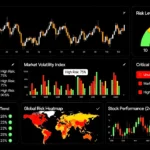In the dynamic landscape of contemporary business, e-commerce has emerged as a transformative force, reshaping how we buy and sell goods and services. This article delves into the expansive realm of e-commerce, examining its significance, tracing the evolution of key technologies, and exploring its impact on various sectors, while also envisioning its transformative potential for the future.
The Significance of E-commerce
E-commerce is not just a convenient alternative to traditional retail; it represents a fundamental shift in how consumers and businesses engage in commerce. It transcends geographical boundaries, providing a platform for seamless transactions and fostering a global marketplace.
Seamless Online Transactions
It has revolutionized how we conduct transactions, offering consumers the convenience of shopping from the comfort of their homes. With secure payment gateways, a variety of payment options, and user-friendly interfaces, online platforms have made purchasing goods and services a hassle-free experience.
Evolution of E-commerce Platforms
The e-commerce landscape has undergone a dynamic evolution, from the early days of basic online storefronts to the emergence of sophisticated platforms, including marketplaces, social commerce, and mobile commerce apps. These platforms cater to diverse consumer preferences, offering a personalized and convenient shopping experience.
Societal Impact and Consumer Behavior
It has precipitated significant shifts in societal norms and consumer behavior. Consumers now expect instant access to a wide range of products, personalized recommendations, and the convenience of doorstep delivery. Social commerce, in particular, has transformed how people discover and purchase products, leveraging social media for shopping inspiration and recommendations.
Evolution of Key Technologies in E-commerce
The e-commerce journey is intricately woven with technological advancements continually pushing the boundaries of what is possible.
E-commerce Websites and Mobile Apps
At the core of e-commerce lies the development of user-friendly websites and mobile applications. Responsive design, seamless navigation, and intuitive interfaces enhance user experience, making it easier for consumers to browse, select, and purchase products.
Payment Gateways and Security
Secure and efficient payment gateways are integral to the success of e-commerce. The evolution from traditional payment methods to encrypted online transactions ensures the safety and privacy of consumer financial information, building trust in the digital marketplace.
Logistics and Supply Chain Management
The efficiency of e-commerce relies heavily on logistics and supply chain management. Innovations such as real-time tracking, automated warehouses, and drone delivery transform how products are sourced, stored, and delivered to consumers.
Impact on Various Sectors
E-commerce extends its influence beyond retail, revolutionizing industries and redefining business operations.
Retail and Consumer Goods
In retail, e-commerce has become a driving force, providing retailers with a global reach and consumers with an unparalleled shopping experience. Traditional brick-and-mortar stores are adapting by integrating online platforms to create omnichannel retail experiences.
Small and Medium Enterprises (SMEs)
It provides SMEs with a level playing field, helping them reach a global audience without the need for extensive physical infrastructure. Platforms like online marketplaces enable small businesses to thrive in the digital marketplace.
Digital Services and Subscription Models
Beyond physical products, it has paved the way for delivering digital services and subscription-based models. The digital economy is flourishing through e-commerce platforms, from streaming services to online courses.
Transformative Potential and Future Outlook
The trajectory of e-commerce points towards a future filled with innovation, integration, and unprecedented possibilities.
Augmented Reality (AR) and Virtual Reality (VR) Shopping
Integrating augmented and virtual reality is poised to redefine the e-commerce experience. Virtual try-ons, immersive product demonstrations, and virtual shopping environments will enhance consumer engagement and decision-making.
Sustainable and Ethical E-commerce
A growing emphasis on sustainability and ethical practices marks the future of e-commerce. Consumers are becoming increasingly aware of the environmental and social impacts of their purchases, driving demand for eco-friendly products and transparent supply chains.
Inclusive Access and Global Market Integration
Efforts to bridge the digital divide and ensure inclusive access to e-commerce will be crucial. Initiatives focused on digital literacy, affordable internet access, and global market integration will create a more connected and equitable global economy.
Conclusion
E-commerce has evolved from a technological innovation to an indispensable facet of modern commerce, shaping how we shop, conduct business, and participate in the global marketplace. As we navigate the digital frontier of e-commerce, its transformative potential is both exciting and profound. With the continued integration of innovative technologies and a commitment to inclusive access, it will remain a driving force in revolutionizing the retail landscape, facilitating global trade, and redefining the possibilities of commerce in the 21st century.





